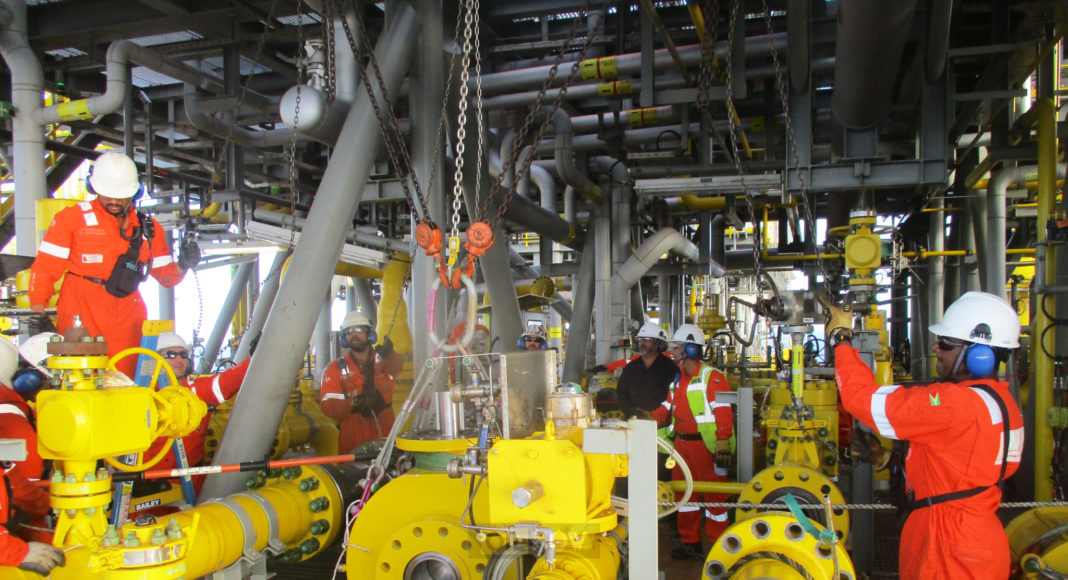Guyana is poised to significantly reduce its reliance on imported fossil fuel to meet its energy needs through the utilisation of natural gas from the offshore Liza field at the Stabroek block. There has been broad-based consensus on the transformational impact this project could have on the economy and the direct benefits it would bring to the people of Guyana.
Based on a desktop review on the feasibility of bringing gas to shore from the Liza 1 well, it was estimated that the well can produce between 30 – 50 million standard cubic feet of natural gas per day without impacting oil production. More substantial volumes of gas are also expected at the end of the field life, the Department of Energy had pointed out in its 2019 Annual Report.
Guyana’s Minister of Natural Resources, Vickram Bharrat, told OilNOW last month the landing site for the pipeline and location where the infrastructure is to be set up for the gas to power project will be finalized before the end of the year, with work set to begin in 2021.
“There are sites that have been located already and proposed based on suitability of location, distribution into the grid, availability of land,” Mr. Bharrat said.
When completed, this project is expected to supply more than 100% of Guyana’s current energy demand, reducing the country’s dependence on imported fossil fuels, saving revenues for other development imperatives, and facilitate the country moving towards a realization of its climate change commitments.
ExxonMobil, operator at the Stabroek block, said it expects significant progress to be made on the project in the coming year. “We have completed studies and offshore surveys on the pipeline, and we are ready to work with the government on the plans,” said Alistair Routledge, ExxonMobil Guyana’s President.
Kevin Ramnarine, former Minister of Energy and Energy Affairs in Trinidad and Tobago said as a rule of thumb, a combined cycle power plant could produce around 5.5 megawatts of electricity for every one million cubic feet of natural gas utilized. “This means that the [estimated] 32 million cubic feet of natural gas [from the Liza field], could supply a 180-megawatt power plant.”
This would have an immediate impact on Guyana which has been plagued with constant power outages for decades with an energy cost among the highest in the region.
“Guyana would have lost a lot over the years because we couldn’t find more effective and cheaper ways of generating power,” Mr. Bharrat said.
ExxonMobil has said it will be doing its part by “coming to the table with technology and ideas” to see how best the diversion of natural gas to shore can become a reality for the new oil producing country.



